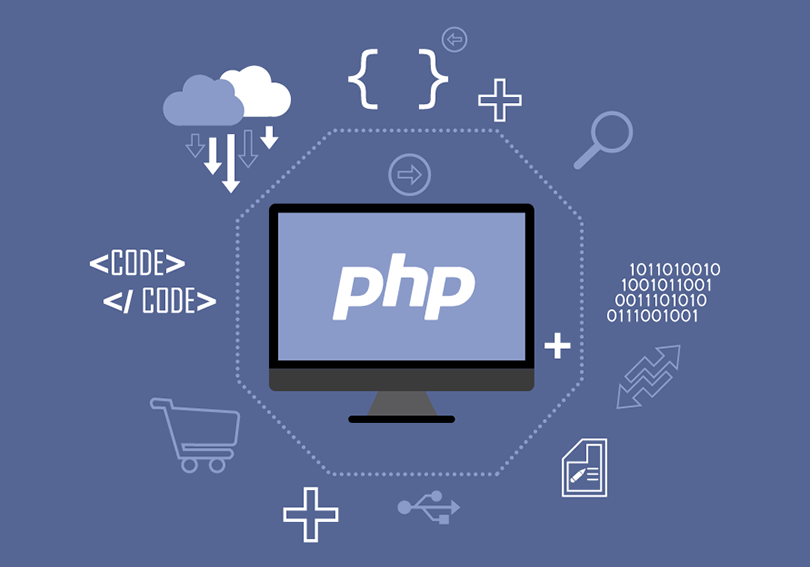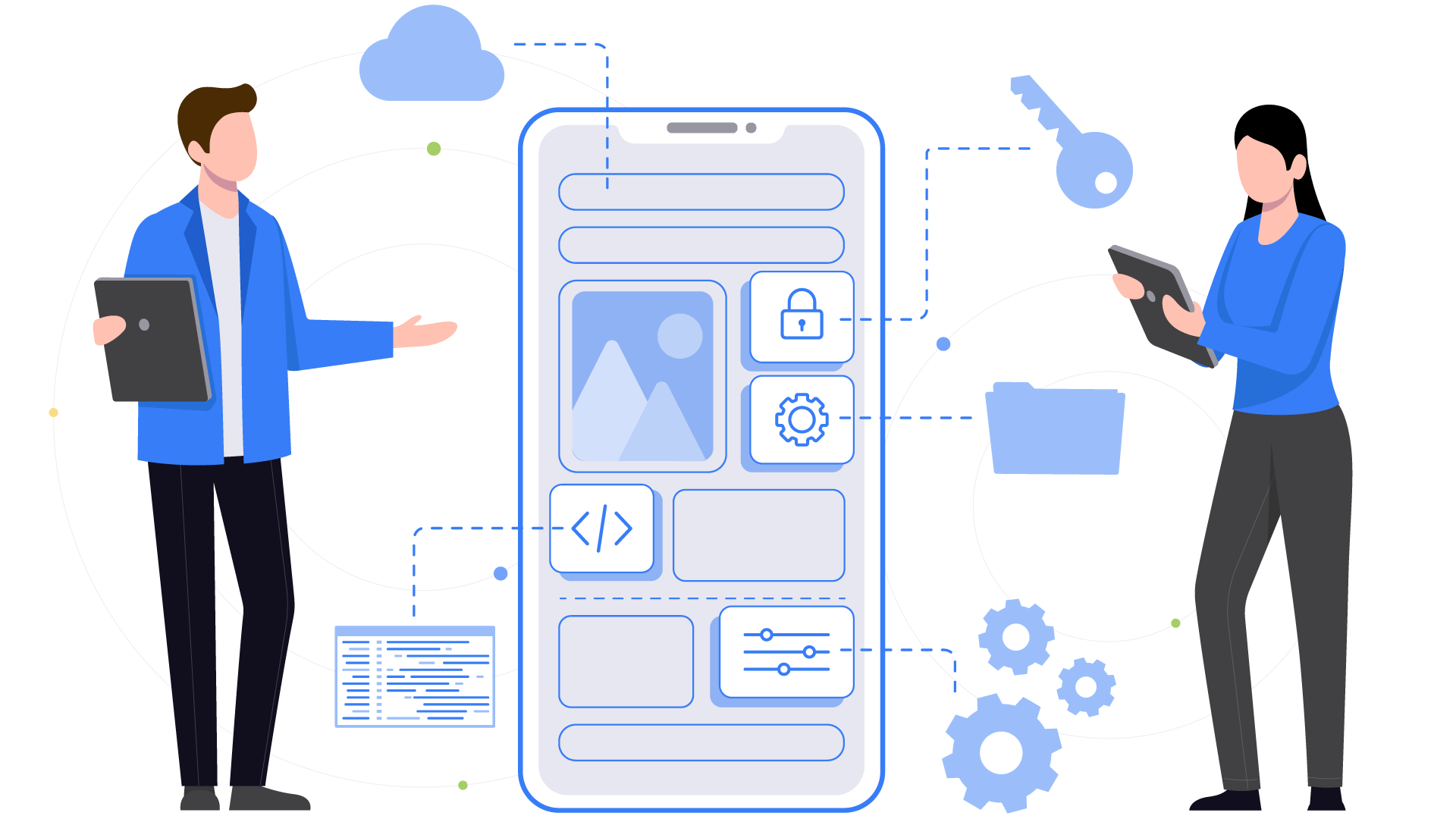Accelerating Digital Transformation with PHP
In the rapidly evolving landscape of digital transformation, businesses are constantly seeking agile and efficient ways to develop applications that meet their changing needs. PHP, a server-side scripting language designed for web development, stands out as a pivotal technology enabling rapid application development. This blog post dives deep into how PHP accelerates digital transformation, catering specifically to the tech-savvy audience keen on leveraging cutting-edge technologies for business growth.
The Essence of PHP in Digital Transformation
PHP (Hypertext Preprocessor) has been instrumental in web development for over two decades. Its significance has evolved, particularly in the context of digital transformation, where speed, scalability, and efficiency are non-negotiable attributes. One of its greatest strengths lies in PHP rapid application development’s ability to facilitate rapid application development-a critical element in today’s fast-paced digital environment.
Scalability and Flexibility
PHP’s open-source nature ensures it is constantly updated with the latest features and functionalities, offering unparalleled flexibility and scalability. Businesses can swiftly adapt to market changes by updating or scaling their applications, thus staying ahead in the digital race.
Cost-Efficiency

The cost benefits of using PHP are undeniable. Being an open-source language, it drastically reduces development costs. Companies can allocate resources more efficiently, ensuring that investment in technology drives substantial business value.
Wide-ranging Support & Rich Ecosystem
PHP’s longstanding presence in the tech landscape has fostered a vast ecosystem for PHP rapid application development. From comprehensive documentation, frameworks, and tools, to an extensive community of developers, PHP provides an abundance of resources. This ecosystem accelerates the development process, solving challenges swiftly with community support and proven solutions.
Seamless Integration Capabilities
PHP’s compatibility with various databases, HTML, CSS, and JavaScript allows for seamless integration with a multitude of technologies. This interoperability is crucial for businesses seeking to leverage existing infrastructure while incorporating new, innovative solutions. By minimizing the need for extensive modifications, PHP aids in the smooth transition of legacy systems into the digital era, ensuring that organizations can innovate without obsolescence.
Security Features
With digital threats becoming increasingly sophisticated, PHP has evolved to offer robust security features that protect sensitive data and applications from cyberattacks. Through regular updates and a dedicated community constantly enhancing security protocols, PHP ensures that applications are guarded against vulnerabilities. This commitment to security not only reinforces trust in PHP-driven applications but also helps companies comply with stringent data protection regulations.
Extensive Testing and Debugging Tools
The PHP ecosystem encompasses a wide array of testing and debugging tools that facilitate high-quality software development. These tools enable developers to identify and rectify issues swiftly, ensuring that applications are reliable, performant, and user-friendly. The availability of such comprehensive testing resources underscores PHP’s role in supporting the delivery of digital solutions that meet stringent quality standards.
By leveraging PHP’s adaptability, security assurances, and robust testing capabilities, businesses can accelerate their digital transformation initiatives. These attributes, combined with PHP’s scalability, cost-efficiency, and rich support ecosystem, position PHP as an invaluable tool in the arsenal of organizations aiming to thrive in the digital landscape.
PHP and Rapid Application Development (RAD)

PHP Rapid Application Development (RAD) is a methodology aimed at quickly building applications by emphasizing iterative development and the use of software prototypes. PHP’s dynamic and flexible nature makes it an ideal choice for RAD. Its rich set of frameworks, including Laravel, Symfony, and CodeIgniter, offers ready-to-use components, enabling developers to focus on creating custom functionalities without reinventing the wheel.
PHP’s contribution to Rapid Application Development (RAD) is multifaceted, driving efficiency and innovation in project development:
Iterative Development
With PHP, developers can employ an iterative approach, making it easier to accommodate changes and additions without disrupting the overall project flow. This adaptability is key in the dynamic world of software development.
Prototyping
PHP facilitates rapid prototyping, allowing teams to quickly create and test versions of applications. This immediate feedback loop accelerates decision-making and leads to better final products.
Wide Range of Frameworks
PHP boasts a rich assortment of frameworks such as Laravel, Symfony, and CodeIgniter. These frameworks provide built-in functions and structures, streamlining the development process and enhancing productivity.
Community Support
The extensive PHP developer community is a treasure trove of knowledge, offering solutions and advice. This support network is invaluable for overcoming challenges and innovating within the RAD framework.
Cost-Effectiveness
The open-source nature of PHP translates into significant cost savings in application development. Budget constraints are less of a hindrance, making it possible to focus resources on innovation and quality.
PHP for Modern Web Development
PHP is not resting on its laurels. With the recent launch of PHP 8, the programming language has successfully integrated cutting-edge modern programming features like Just-In-Time (JIT) compilation and attributes (annotations), which significantly boost its appeal and functionality for contemporary web development projects in this rapidly evolving digital landscape.
Just-In-Time Compilation
PHP 8 introduces the JIT compilation feature, which significantly improves performance by compiling code in real-time, leading to faster execution times for applications. This enhancement is particularly beneficial in high-demand environments, ensuring efficient processing and better user experiences.
Attributes (Annotations)
Attributes or annotations in PHP 8 present a structured way of adding metadata to classes, methods, and functions. This modern feature facilitates more readable code and simplifies the implementation of software design patterns, enhancing maintainability and scalability.
Union Types
The introduction of union types allows functions to accept multiple types of data, thereby increasing the flexibility and robustness of PHP applications. This feature supports cleaner codebases and reduces the likelihood of type-related errors.
Named Arguments
PHP 8’s named arguments feature allows developers to specify values for function parameters by their names, making the code more readable and reducing potential errors associated with the order of arguments. This improvement streamlines coding practices and enhances code clarity.
Enhanced Error Handling
Improved error handling mechanisms in PHP 8 make it easier to catch and manage errors, contributing to more stable and reliable applications. This change aids developers in quickly identifying issues, substantially reducing debugging time.
Consistency Improvements
PHP 8 has made significant strides in improving language consistency, incorporating features that standardize expressions and language constructs. Such consistency leads to a more intuitive development experience, facilitating easier learning and adoption for new developers.
PHP’s evolution, accentuated by PHP 8’s advancements, underscores its suitability for modern web development. These improvements not only cater to the needs of contemporary applications but also demonstrate PHP’s ongoing commitment to innovation and excellence in a competitive digital ecosystem.
Conclusion: PHP as a Catalyst for Digital Transformation
PHP’s capacity for rapid application development positions it as a catalyst for digital transformation. Its blend of flexibility, cost-efficiency, and a supportive ecosystem provides a solid foundation for businesses aiming to thrive in the digital era.
Leveraging PHP for your digital transformation initiatives can significantly accelerate your application development processes, ensuring you remain competitive and responsive to market dynamics.
